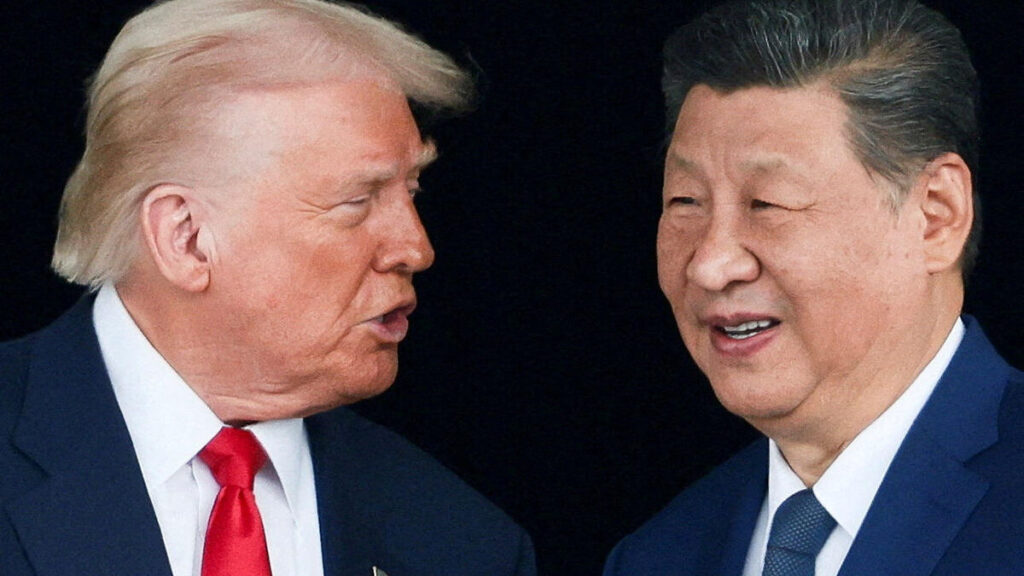
Chinese President Xi Jinping discussed Taiwan on Monday during a telephone conversation with American President Donald Trump, and said that the island’s inclusion under the Chinese communist flag was a major international issue, according to state media. Beijing claims Taiwan and has not ruled out the option of an armed invasion to seize it, exerting strong military, economic and diplomatic pressure.
According to the Xinhua news agency, Xi Jinping told his American counterpart that Beijing and Washington should “maintain the momentum in their relations” after their October meeting in South Korea, where they sought to defuse the trade war between their countries. After this phone call, Donald Trump assured in a message on his Truth Social network that relations with Beijing were “very solid”, without mentioning the very sensitive question of Taiwan.
The Chinese leader predicted, during the telephone exchange, that the island’s “return” “to China is an important part of the postwar international order,” according to the agency. “Given the situation, it is more important for us to work together to safeguard the victory of the Second World War,” he continued.
Japanese Prime Minister Sanae Takaichi recently said that an armed operation against Taiwan could justify Japanese military intervention to defend the island. China saw these words as a provocation.
The United States does not officially recognize Taiwan’s statehood, but remains Taiwan’s strongest supporter and main arms supplier. The US president confirmed on Monday that he will visit China in April and that the Chinese president will then come to the United States.
“Of course we have to be very careful. We have to worry, but don’t worry too much, because harming Taiwan could also harm American interests,” Taiwan’s diplomacy chief, Lin Chia-lung, said in mid-November, regarding the possibility of a Sino-American agreement at the expense of Taiwan.
Trade relations between China and the United States
Donald Trump and Xi Jinping met for the first time since 2019 in October, in Busan, South Korea, engaging in intense discussions amid the two countries’ trade war. The fight between the world’s two largest economies, covering everything from rare earth metals to soybeans to port duties, has rocked markets and disrupted supply chains for months.
U.S. Treasury Secretary Scott Bessent said he was “hopeful” that an agreement between the United States and China on rare earths exports could be officially finalized by last Thanksgiving, November 27.
Following a meeting between the two leaders, Beijing agreed to suspend, for one year, additional restrictions imposed weeks earlier on exports of rare earth metals, particularly metals critical to the global technology sector. These minerals are mined in many countries, including the United States, but China has a monopoly on processing them for industrial use.
As part of the agreement announced at the end of October, the American government will reduce the level of import duties imposed on Chinese products from 57% to 47%. China has also committed to buying 12 million tonnes of American soybeans by the end of this year, and 25 million tonnes annually by 2026.
“Since the meeting in Busan, Sino-US relations have generally remained stable and continued to improve, which has received widespread praise from both countries and the international community,” the Chinese president added, according to Xinhua.





